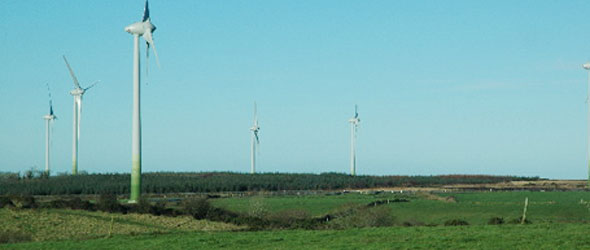Nearly half of Ireland’s wastewater treatment plants serving urban centres are failing to achieve national and EU standards, according to a new report released today by the Environmental Protection Agency (EPA).
Commenting on the report Mr. Gerard O’Leary, Programme Manager, in the EPA’s Office of Environmental Enforcement said:
“This level of performance is poor and needs to improve. In order to meet EU targets further investment in infrastructure is required and we need a step change in the operation and maintenance of these valuable assets.”
This report, the eighth in the series, is the first review of the operation of waste water treatment plants at 529 urban areas since they became subject to a new licensing regime being rolled out by the EPA. The main findings are as follows:
46% of waste water treatment plants did not meet all waste water quality standards or EPA guidelines. Eleven large urban areas do not meet the Urban Waste Water Treatment Directive (UWWTD) requirement to have secondary treatment in place (Table 1). These include, for example, Bray and Ringaskiddy where the provision of treatment is now ten years overdue; Clifden, where the old plant is impacting on bathing water; and Moville where discharges are causing serious pollution to the River Bredagh. Eight urban areas do not meet the UWWTD requirement to provide nutrient reduction in addition to secondary treatment for discharges to sensitive water areas by specified dates (Table 2). Because these relate to more sensitive environments a higher level of treatment is required – in these cases, nutrients such as phosphorus and nitrogen have to be removed. Areas affected include the cities of Cork, Dublin and Kilkenny. The EPA expects that by 2015 the necessary treatment will be in place for the large urban centres – work to be completed by the relevant local authorities.
Commenting on the Report, Dara Lynott, Director, Office of Environmental Enforcement said:
“Meeting our EU targets will require substantial and sustained investment. However, the benefits of such investment extend beyond water quality, as clean water is a pre-requisite for our tourism, food, agriculture and manufacturing industries.”
Since the last report, there has been significant improvement in the monitoring of waste water treatment plants. In 2007, 112 plants did not take sufficient samples; this figure has reduced to 38 in the current report.
“We are pleased to see this increase in monitoring – that was an area we highlighted in the last report. The issues we are highlighting today, in particular, operation and maintenance, now need to be prioritised in the coming years,” Dara Lynott concluded.
Urban Waste Water Treatment Directive: The Urban Waste Water Treatment Directive (91/271/EEC) has requirements for sewerage systems (or waste water collection systems) to be provided and sets deadlines for the provision of sewage treatment. The main requirements of the UWWTD are as follows:
Scheduled provision of waste water collecting systems and treatment plants based on the size of the agglomeration and the type of water body to which the waste water is discharged (freshwater, estuarine or coastal, sensitive or non-sensitive). Monitoring by water services authorities (including frequency of monitoring) of discharges from waste water treatment plants.
In Ireland the Urban Waste Water Treatment Regulations, 2001 (S.I. No. 254 of 2001), as amended, give effect to the Urban Waste Water Treatment Directive (91/271/EEC).
The EU urban waste water treatment Directive requires compliance with waste water quality standards and typically, twelve samples per year are required from each plant. Each sample must comply with individual quality standards set for three parameters BOD, COD and SS. There are additional requirements for discharges to nutrient sensitive waters.
EU Water Framework Directive: the WFD requires member states to take a holistic approach to managing their water resources. It applies to rivers, lakes, groundwater, estuaries and coastal waters. Member States must aim to achieve good status in all waters by 2015 and must ensure that status does not deteriorate in any waters.
The Waste Water Discharge (Authorisation) Regulations 2007 introduced a licensing system for urban waste water discharges to drive improvements in water quality in Ireland. The EPA has received 529 licence applications and 515 applications for certificates of authorisation. To date it has granted 190 licences and 512 certificates.






















The standard of sewage treatment and the attitude towards sewage waste must change. In Mallow, I have seen raw sewage, solids, toilet paper, etc. flowing right past the Co. Cork Energy Centre (run and owned by the Council) from the housing development above. I was even told by an official there not to say anything about it as it “happens all the time when it rains”. This stream flows into the Blackwater River, one of our best fishing rivers. No wonder we face prosecution when the people in charge have that type of attitude.